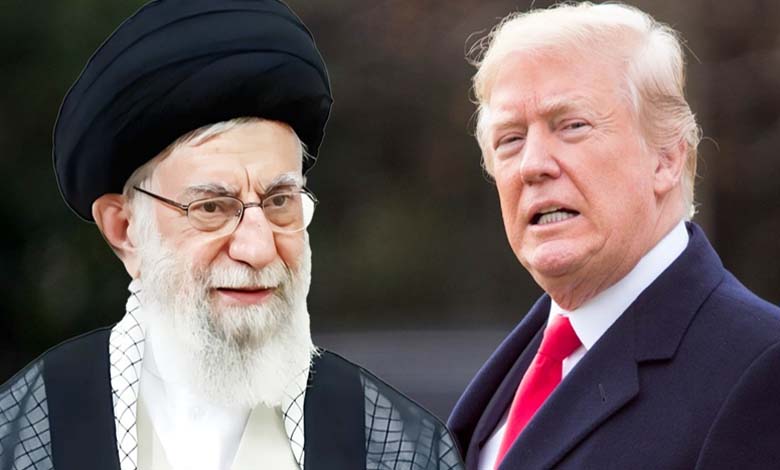Energy Investments: Iran’s New Card to Woo Trump and End Sanctions

Statements by Abbas Araghtchi regarding his country’s lack of opposition to American companies operating in the Iranian market reflect an attempt to capitalize on President Donald Trump‘s affinity for business deals, with the aim of encouraging him to lift sanctions amid talks of an imminent nuclear agreement.
-
Trump and Iran: 4 Possible Scenarios, Including “Shock and Awe”
-
Trump’s Pressure Pushes Iran to Accept U.S. Demands on Nuclear File
Iranian Deputy Foreign Minister Abbas Araghtchi’s remarks suggesting that Iran does not oppose the presence of U.S. companies in its market appear to be a veiled message to the Trump administration: the economic path to Iran is open, provided that sanctions are lifted. While he attributed the lack of American investments to U.S.-imposed sanctions, his unprecedented statement signals an implicit willingness for economic — and perhaps political — cooperation, if Washington shows flexibility in its stance toward Tehran.
In this context, the Iranian leadership seems eager to exploit Trump‘s clear inclination toward economic deals and commercial gains to reopen channels of dialogue through the economic gateway. Following Trump’s surprising decision to lift sanctions on Syria, Araghchi’s call — discreet yet deliberate — for U.S. investment, including in Iran’s oil and gas sectors, fits into a broader pattern of Iranian messaging that aims to entice the U.S. administration with lucrative opportunities as a means of improving bilateral relations. This strategy appears to be part of a larger shift in which Tehran seeks to reposition itself regionally and globally through soft-power tools, without relinquishing its core negotiating levers.
-
Iran’s Nuclear Program Back in the Spotlight… and Trump Seeks Political Breakthrough
-
Between Escalation and De-escalation: How Will Trump Handle Iran?
This impression is reinforced by a recent statement from Ali Shamkhani, advisor to Supreme Leader Ali Khamenei, in which he announced Iran’s readiness to make unprecedented concessions in the nuclear file. Iran pledged to fully abandon the production of nuclear weapons, eliminate its stockpile of highly enriched uranium, limit enrichment to civilian levels, and open its facilities to international inspections. These signals, which preceded Araghchi’s remarks, suggest that Tehran may be more open to a comprehensive deal with Washington — provided it is met with immediate economic concessions, foremost among them the lifting of sanctions that are crippling the Iranian economy and deterring investment.
The Iranian foreign minister pointed out that current sanctions prevent American entities and individuals from engaging with the Iranian market, stating, “This ban was imposed by the United States itself.” He added, “If American companies hope to invest in the Iranian economy, the United States must lift its sanctions.”
-
Trump’s Return Pushes European Powers to Demand Increased Pressure on Iran
-
Iran Keeps Door Open for Dialogue with Trump and Prepares for New Sanctions
It remains unclear how the U.S. administration will respond to Iran’s outreach. However, President Trump — known for his deal-making approach — is likely to seize this opportunity, though he is expected to hold firm on certain red lines, particularly concerning Iran’s nuclear program and its support for regional proxies.
The Trump administration has already conducted four rounds of negotiations with Tehran in an effort to reach a new agreement on its nuclear program. The U.S. president has urged the Islamic Republic to negotiate, warning of military action if a settlement is not reached.
-
Tehran and Washington Resume Nuclear Talks Under the Pressure of Red Lines
-
Israel Under Fire After Thwarted Cyberattack on Iran
In recent weeks, Washington has imposed sanctions on several entities and individuals associated with Iran’s oil industry and its nuclear and missile programs.
In 2018, during his first term, Trump withdrew the United States from the 2015 international nuclear deal with Iran and reimposed sanctions on the Islamic Republic, including secondary sanctions targeting countries that purchase Iranian oil.
The Iranian foreign minister reiterated that American companies are welcome to operate in key sectors of Iran’s economy, including the oil and gas industries, emphasizing that Tehran has not imposed any restrictions on their activities.
Earlier on Thursday, Trump stated that Washington and Tehran were nearing an agreement on Iran’s nuclear program.












